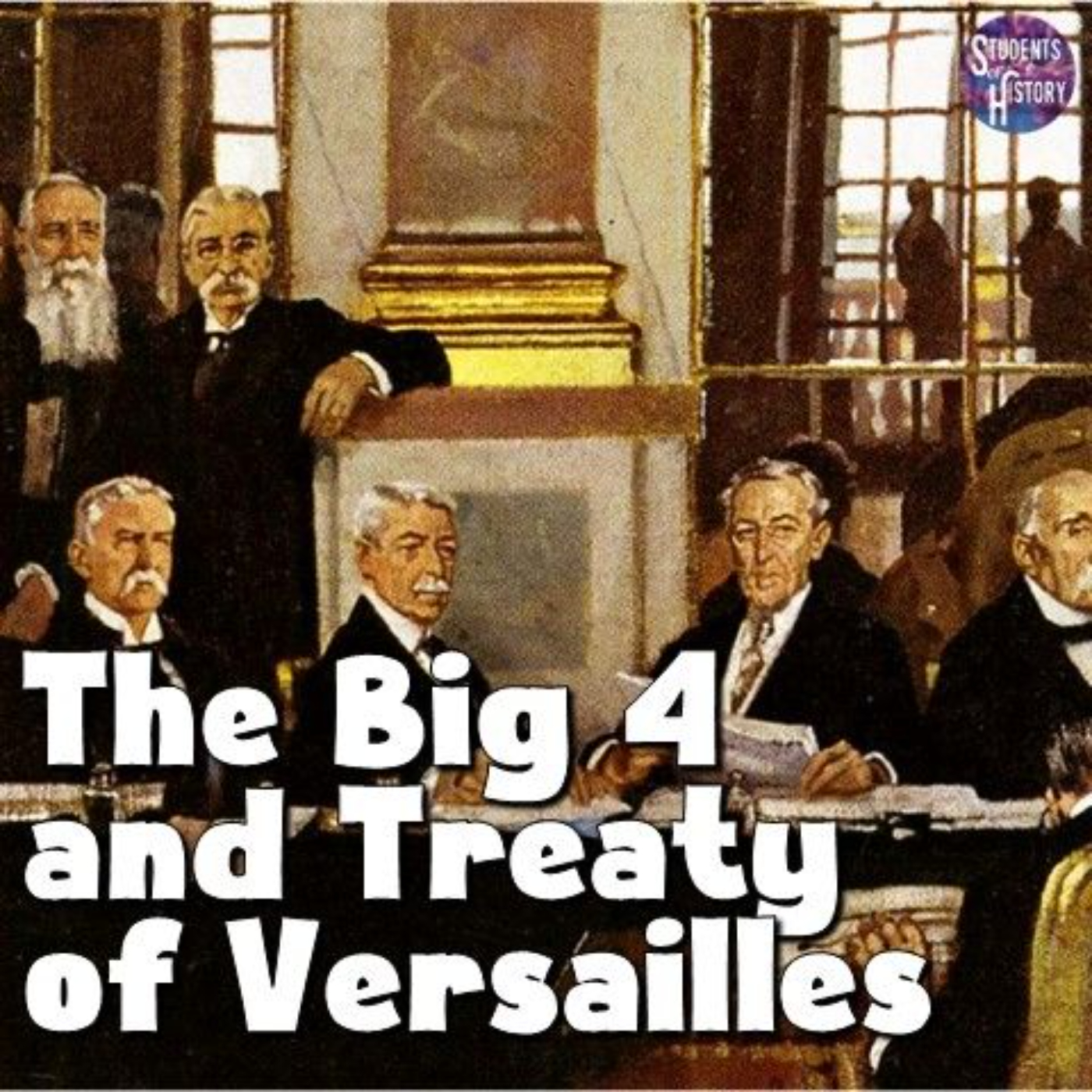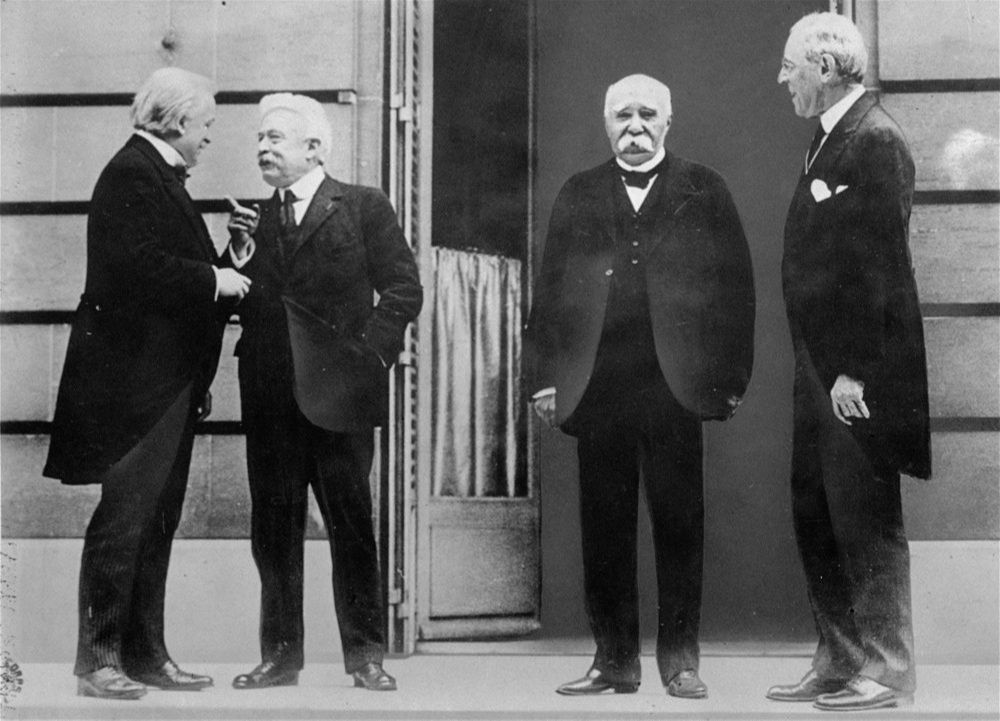The Big Four and the Treaty of Versailles

The Paris Peace Conference of January 1919 brought together leaders from the Allied powers during World War I. They came to be known as the Big Four.
President Woodrow Wilson was joined by Prime Ministers David Lloyd George of Britain, Vittorio Orlando of Italy, and George Clemenceau of France. All four of them came to the peace conference prepared with their own vision and goals for the treaty which would ultimately end World War 1.
Drawing on his 14 Points, which was a declaration he had read before Congress a year earlier, President Wilson believed that the goal of the treaty should be to create a lasting peace. Wilson wanted the Great War to be the one which would end all future wars, and he felt that could not happen unless global peace was established.
In order to ensure a long-lasting peace, Wilson advocated for the creation of a peace-keeping organization known as the League of Nations, which would solve disputes and prevent future large-scale conflicts. In good faith, he also asserted that Germany should be treated fairly following the end of the war.

Clemenceau of France took a harsher approach when it came to Germany, asserting that they should be punished and take the blame for starting the war. He, like many other French citizens, believed that Germany owed them the land they had taken years earlier, such as the Alsace-Lorraine territory that was conceded to Germany in 1871. Clemenceau represented his people who were still bitter over this territorial conquest.
Orlando of Italy also expected a land deal out of the agreement. Back in 1915, Italy had entered a secret agreement with France, Britain, and Russia, and in return for entering the war, the three had promised that Italy would receive various territories. Orlando argued that it was time Italy got what it was promised, namely the areas of Trieste and southern Tyrol.
Finally, Lloyd George of Britain wanted to ensure that a treaty would protect the British navy. Although he also wanted Germany to pay for having caused the war, he was not as bitter nor pessimistic as Clemenceau. Lloyd George made it clear that he envisioned his country having the ability to trade with Germany in the future.
Six months after the conference, the Allies would sign the Treaty of Versailles with Germany in June of 1919, effectively ending the Great War and concluding the peace talks.